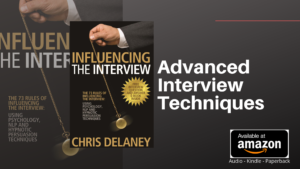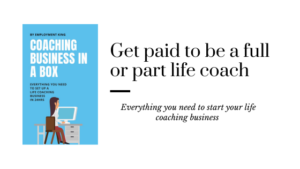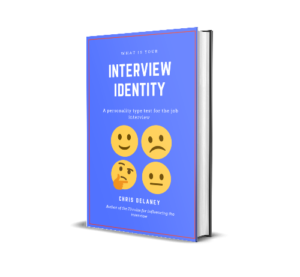Imposture syndrome is the biggest barrier to job interview success. The data proves that a lack of job interview self-esteem is unfounded as any career professional who has been offered a job interview is in fact 97% better than the competition.
Much research has highlighted that the average number of applications per vacancy is around 250 (vastly higher for global organisations such as Microsoft or Google) HR statistics tell us how only 6-8 of the 250 applicants are offered a job interview.
The data speaks for itself. The percentage of 6-8 interviewees out of 250 applicants is around 3% – That means a candidate who has received an interview offer is in the top 3 percent of most ‘suitable’ from the employer’s perspective.
And it’s the employers perceptive that counts.
How an Employers Views a Perspective Candidate
How an employer views a candidate, either via their application or during the job interview, increases the likelihood of that applicant being offered the job role, or not.
The candidates ‘interview identity’ which is formed by the job seekers level of knowledge/experience vs their level of confidence creates 1 of 16 interview identities with only a small number of the ‘identities’ being view as suitable enough to be offered the advertised vacancy.
The office for national statistics explained how for the first time ever there are more job vacancies than unemployed people.
There hasn’t been a better time to gain a salary increase, by finding a new job opportunity, then now. Employers from across job sectors are looking at creative way to encourage applicants to accept their job roles from offering a blended office/home working option to wage increases.
The fear of career change
With an increase in job opportunities, a potentially high salary with a new employer and an awareness of growth sectors that offer a more secure career, why aren’t career professionals applying for new vacancies?
Even career professionals who hate their job role, those who are stressed out due to workload, or graduates that picked the wrong job sector to work in, don’t make a career change.
The reason is simple. Humans fear change.
In the world of work many career professionals see a career change as a backwards step where they would have to start of the bottom rung of the career ladder. This limiting belief is inaccurate as employers look for a diverse workforce who can bring a new perspective gain from experience in a different industry.
In fact, many employers seek to gain talented team members without direct experience in the sector. An example of this would be a manager – skilled at leadership, staff recruitment, finance projections. Managerial skills are transferable into many job sectors.
Humans fear failure
At a basic level humans have in built desire to ‘belong’. Humans are pack animals. To survive in a pack individuals need to be accepted by others. To be rejected is to die. The same emotional pull happens in all social situations. Many humans avoid asking someone on a date as they don’t want to chance being rejected. People fear public speaking as they fear being ‘laughed’ at. And career professionals hate job interviews because they might be told they ‘are not good enough’.
It is easier to stay with the devil you know than to make a change, even is the current situation is a toxic workplace that is making you ill.
It is time to make a change
A confident career professional with over 10 years industry experience and/or a degree level qualification or above should easily gain a number of job interviews – creating the 3% rule.
This means the competition is now only 6 other applicants. Six people, rather than 250 candidates, doesn’t seem so overwhelming.
During the 45 minutes job interview the average employer will ask 6 job interview questions – often behavioural interview questions (question based on past experiences – “give me an example of doing A”)
The initial question commonly asked is: “tell me about yourself” An easy question to ask, and the final question is “Do you have any questions for us?”

Knowing the structure of the job interview reduces the candidate’s anxiety levels. Lower levels of anxiety increase performance confidence, allowing an interviewee to produce more detailed job interview examples relevant to the job interview question.
Employers will hint towards the job interview questions by sharing the essential criteria of the job role. It is the main duties or essential criteria that is referenced in the job interview questions. This insight can help a job seeker prepare high-scoring interview answers and examples prior to the job interview.
Fear creates procrastination. As a high number of people fear the job interview it is unlikely that each candidate will complete the essential preparation before a recruitment process. If for example only 50% of candidates fully prepare, including yourself, that is only 2 other applicants who are confident enough to give good job interview answers.
From 250 initial applicants, only 3 of the 6 interviewees will be interview ready. This means you only need to give higher scoring answers then the two other prepared people.


















